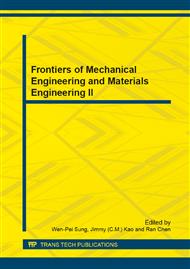p.1411
p.1415
p.1419
p.1423
p.1427
p.1432
p.1436
p.1440
p.1444
Comparative Study of Well Known Sequencing Methodologies and Differential Evolution: A Case Study of Thailand Garment Industries
Abstract:
The objective of this research is to study the problem and efficiency improvement of the clean room garment factory. The methods of production schedule were performed by heuristic technique of well-known scheduling methodologies including Shortest Processing Time, , Earliest Due Date, First Come First Serve method and Differential Evolution Method (DE). All methods can help to reduce the costs of delay shipment and time loss in various case studies. They were applied to the production order in 2 months after flooding problems in Thailand .The demand has a lot of quantities over production capacity. The results showed that the rules of Earliest Due Date method (EDD) is a powerful methodology for increasing production efficiency and minimizing make span. Whereas, the First Come First Serve (FCFS) method is the best method for finding a minimum value of total late job. Finally, Differential Evolution Method (DE) is the best method for finding a minimize value of average tardiness job.
Info:
Periodical:
Pages:
1427-1431
Citation:
Online since:
October 2013
Authors:
Price:
Сopyright:
© 2014 Trans Tech Publications Ltd. All Rights Reserved
Share:
Citation:


